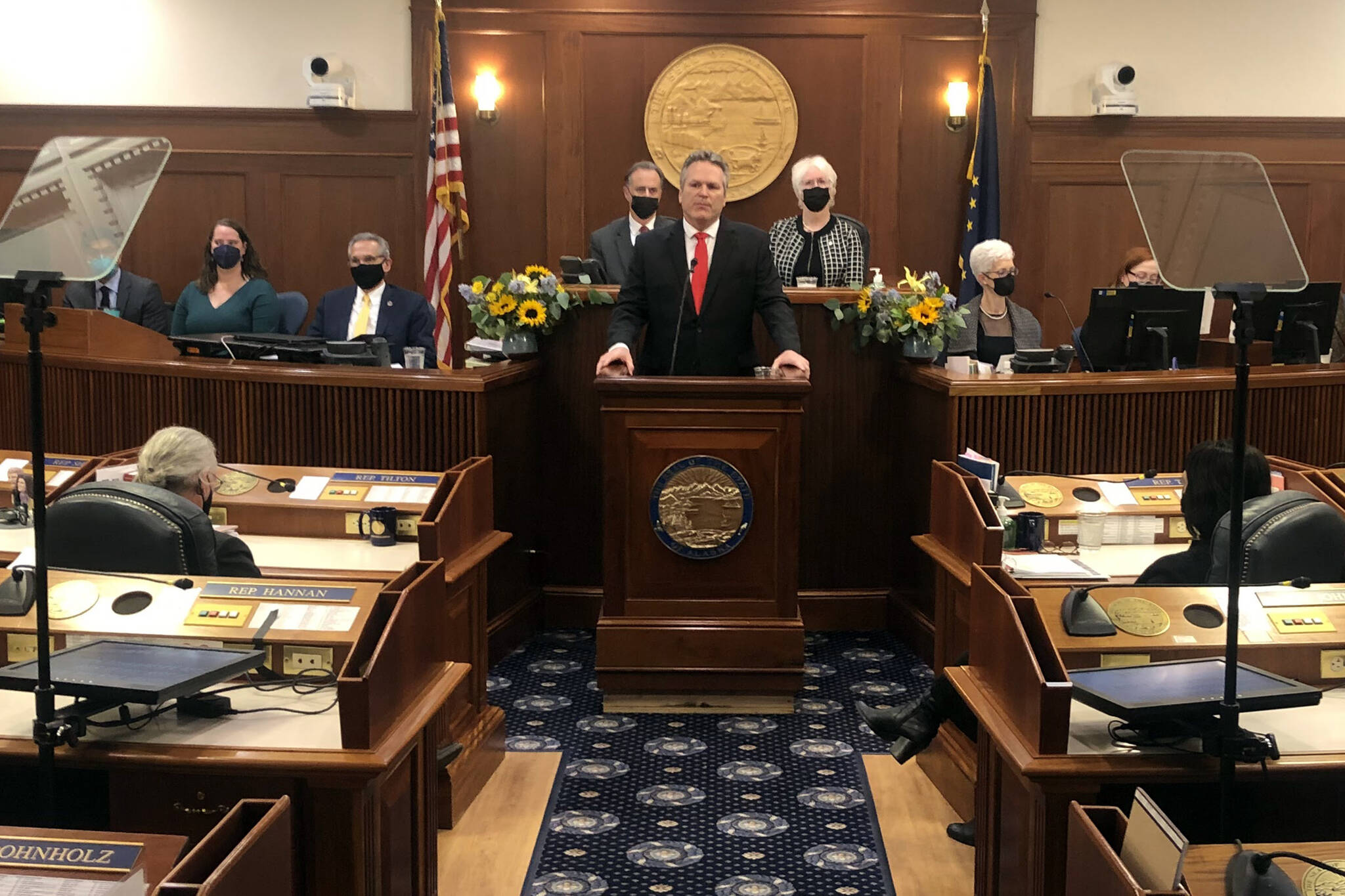By Rich Moniak
“The future is now” Gov. Mike Dunleavy said toward the end of his State of the State speech last week. “We can’t dwell on yesterday, and we’re running out of tomorrows.”
That’s an echo from his first State of the State Speech when he talked about “securing Alaska’s future.” But this time it’s a campaign message that relies on Alaskans forgetting how many ways he wasted three years’ worth of tomorrows.
All politicians seeking reelection rely on public amnesia to some extent. Usually, it’s in regard to broken campaign promises.
Dunleavy has more than a few of those, the biggest being that he’d give every Alaskan supplemental Permanent Fund Dividends worth $3,678. That was supposed to be back pay for the three prior years in which we didn’t receive a PFD in accordance with the 1982 statutory formula. He said we’d always receive that going forward.
Those promises were predicated on a poor understanding of the state’s budget problems.
Before I get to that, last week’s news gave us a reminder that his first act as governor was illegal.
Within minutes of taking office, Dunleavy fired an attorney in the Department of Law because she’d been writing a private blog that was highly critical of President Donald Trump. Last week, a federal judge ruled he violated her First Amendment rights. He also fired two psychiatrists who refused to pledge loyalty to his political agenda. That violation of the Constitution cost the state almost a half million dollars.
Meanwhile, as if it ever happened, Dunleavy’s speech portrayed himself as a guardian against “a federal government that violates our God-given rights and exceeds its constitutional authority.”
Let’s not forget how Dunleavy destroyed the Alaska Marine Highway system. Although he failed to mention it, reliable ferry service is one of “the core services” he said Alaskans expect from state government. But after cutting two thirds of the agency’s 2020 budget, some communities went without service for two months. Cordova lost it for the entire winter.
An honest State of the State speech would have acknowledged AMHS is barely limping along but about to get a billion-dollar bailout courtesy of the infrastructure bill passed by Congress.
He did briefly discuss the Washington, Wyoming, Alaska, Montana and Idaho Medical Education Program. One of its two primary goals is to encourage graduates to practice “primary care medicine … in underserved areas of the Northwest,” which obviously includes much of Alaska. To “build a stronger, more durable health care system in Alaska” Dunleavy wants to increase its budget by 50%.
But in 2019, he argued WWAMI wasn’t effective in meeting Alaska’s needs and proposed eliminating it.
The $3 million budget for WWAMI was tiny compared to the University of Alaska, which he now claims “is central” to his vision for Alaska to become “a worldwide leader in technology.”
But in 2019, part of his proposed 40% cut to the UA budget included shutting down its research programs.
Every one of those budget cuts, and many others, were necessary because of his unrealistic plan to balance the budget through nothing more than “a series of cost savings, efficiencies and targeted reforms.”
This year, he deserves no credit for the new revenue temporarily solving the problem. That includes federal infrastructure money for highway and ferries and COVID relief funds already in the bank.
Plus, oil revenue is up. Prices topped $90 per barrel for the first time since October 2014.
But Alaskans “know the price of oil is volatile” Dunleavy said last week. “We know better than to take current prices for granted.”
Yes, we do. But remember, the explanation he gave for his massive budget cuts was an attempt to convince us otherwise.
“In October of 2018, the price of oil was trending at nearly $85 per barrel. But when we took office in December, oil prices had plummeted to near $55 per barrel, cutting over $1.7 billion in potential revenue in less than three months.”
The truth is oil prices were over $80 per barrel for only the last few weeks of his campaign. It averaged $66 the prior 14 months.
That $1.7 billion was either a fool’s mirage or a dishonest alibi. And every decision he anchored to it is what he’s hoping voters have forgotten.
• Rich Moniak is a Juneau resident and retired civil engineer with more than 25 years of experience working in the public sector. Columns, My Turns and Letters to the Editor represent the view of the author, not the view of the Juneau Empire. Have something to say? Here’s how to submit a My Turn or letter.

